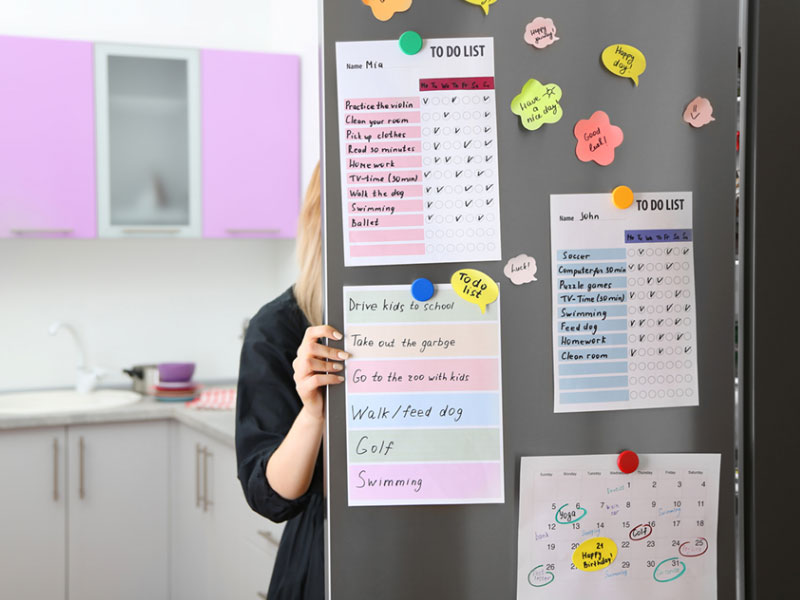“How many times have I had to remind you, Jack, you need to remember to log onto your Zoom class at 1 p.m. after lunch.” “James, why can’t you remember to do your homework without my constantly reminding you?” Sound familiar? Do you wish that your child or teen could be more independent?
Fostering independence gradually in an age-appropriate way is important. While the current COVID-19 pandemic may add more possible responsibilities for everyone, including both parents and kids, it can also offer increased opportunities to help your child or teen enhance their level of independence. Wouldn’t you love a silver lining of the pandemic to be that your child or teen emerges with greater self-sufficiency?
The key to helping your child or teen to be more independent is to find opportunities to do so while also giving them tools, guidance and scaffolding as needed to enable them to be successful at carrying out the tasks themselves.
Here are some general ideas for ways to help you increase your child or teen’s level of independence. Obviously taking into account their individual needs, skill sets and areas of limitation are important in tailoring these items for your children/teens.
1. Help your child or teen to automate reminders for things such as logging into virtual school, completing homework, taking out the trash, brushing their teeth, cleaning their room and other items as needed. Using methods other than you reminding them about things can greatly increase their autonomy, reduce conflicts and potentially make the follow-through even better.
- Electronic reminder options include: personal assistants such as Alexa or Google Home (auditory and work as long as within ear shot of the device), Google Calendar, Reminders or other task list apps (work if either in front of a device at the time or if likely to open up the device within a timely manner around the time that the task needs to be completed).
- Non-electronic reminder options include: a visual schedule, list of tasks on a whiteboard in a central location such as near their computer, in the kitchen or other ideal place.
2. Incorporate organization of events, tasks, etc. naturally into the family so that children or teens pick up on these strategies and learn to use them more frequently on their own as they get older.
- Examples include having a shared family electronic or paper calendar (and encouraging kids to add their own events themselves to this, such as plans with friends), weekly family meetings to review events and tasks/chores for the week and using timers and reminders from a personal assistant (e.g., use Alexa to remind you to take out the trash on trash day; when your kids ask you to remind them about something, suggest they use Alexa or another automated method to do so).
3. Think logically about the physical placement of things and use related tools to facilitate greater independence.
- For example, if you would like your child or teen to do a better job of putting their laundry in their hamper, problem-solve that with your child/teen. Think about where they usually get undressed and where the hamper is. If they get undressed near their bed, perhaps having the hamper in that location will create a visual cue and facilitate better use of the hamper.
- If your child or teen tends to forget to put things back where they go, such as milk in the refrigerator or the stapler in the office area, try to encourage them to keep items taken out from somewhere in their hand until they are put back where they go. If the item does not leave your child’s or teen’s hands until it is put back in the right location, it is less likely that they will put it down and forget to put it back in the right place.
4. Take advantage of natural opportunities for your child/teen to do things themselves or at least do them with your assistance, instead of you just doing it for them because it is easier or quicker.
- Examples include emailing a teacher with questions about an assignment, making certain appointments (especially for older teens), and ordering food takeout/delivery.
For many parents, especially during recent times with the pandemic and associated increased responsibilities for both parents and kids, finding the quickest method to get something accomplished may take precedence over the long-term benefit. However, by taking small and incremental steps now, you can help your children/teens to be more independent even in the short-term of the continued pandemic. This will help both you and them and translate into long-term gains to help them be autonomous adults in the future.



